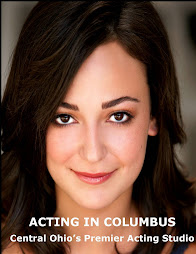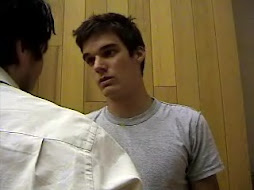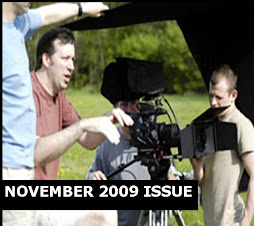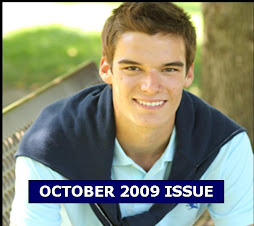In a group casting session last weekend I watched 120 monologues in two and a half days. A good local theatre was auditioning for a Festival of Independent Theatre. Short original plays by local writers affiliated with the theatre's writer's development program. I was asked to direct one of them. The actors were on many levels, quite a few had resume's a mile long and others just a cover letter , some awful mistakes were made by each level, and oddly enough, they were often making the same mistakes. Take this advice to heart, look over the mistakes I point out, and be absolutely sure that you never make any of them.
You have all the time in the world to put every ounce of training you've ever had, every piece of knowledge you've ever gathered on acting to work for you. You have time to get coaching on it. Your monologue is the only time in your career when you will ever have all the time in the world to get ready for a performance. THERE IS ABSOLUTELY, NOW OR EVER, ANY EXCUSE FOR BLOWING IT.
1] PLAY THE ROOM. I don't know what happens to actors, they walk into a small theatre, plant themselves three feet from an auditioner and then blow out the auditioner's ears and mess up their hair by performing as if they were playing the monologue to someone across the Grand Canyon. Sometimes you do audition in a giant theatre, sometimes in a small theatre, or an even smaller office. Nothing betrays artifice/looks more phony, quicker and lasts so long, than an actor overplaying a room. On that note, I say I can create anything out of energy, but I can't create energy. The energetic actor, the one I have to ask to pull it back a little is always more appreciated than the one I have to say, could you give me a little more energy. In fact I will not ask any actor for more energy, I'll just say, "Thank you for coming."
2] DON'T BE A TALKING HEAD Many of the actors looked like their feet were really darts and someone had thrown them in an arc onto the stage. Where ever they hit is where they stayed as if they were frozen to the floor. It was impossible for me to believe that all that emotion was going through that person when they never moved an inch. It was talking heads time and it will kill any monologue audition. If you're feeling a wide range of emotions, or a very deep connection with an emotion, it should move you at least a little. Let yourself go, follow those urges to move. Another aspect of this is, some actors did their entire monologue sitting in a chair. Why would you do that to yourself? An important part of your charm/value is in how you move. Since we're talking about ways actors limit themselves, your body is also part of your charm/value. If you have a nice one, show it off. Don't come in a thong, don't overdue it, but don't hide it. There are tasteful ways to put your body forward.
3] THE WALL CAN'T HIRE YOU Surprisingly this happened with experienced and novice actors, many did the whole or 90% of the monologue in profile or a modified 3/4 profile. After one such presentation, I walked over to the actor and asked her if she thought that that side wall she just gave her monologue to was going to hire her. I pointed out to the various directors sitting around the room and said no, we are and we're out here. In a monologue, get your face out there, jeez there's only one actor on stage and you're UPSTAGING YOURSELF, hello.
4] THE AUDITIONER IS NOT YOUR SCENE PARTNER Don't use the auditioner as your scene partner. You trap them into acting with you and that means that their attention is not where it's supposed to be, on you. Most people who audition actors, were or are actors! Suck them into a scene with you and they, by default, go into an acting mode. You don't want them thinking about their performance, you want them thinking about YOUR PERFORMANCE.
Don't use the auditioner unless you are specifically asked to do so. Having someone to use certainly does help, so create them. Usually in a monologue you are talking to someone who would be there in a performance. In a monologue situation you have to really see that person. You must see how what you are saying is affecting them. You have to know exactly how tall they are, what color their eyes are, what their hair looks like. You have to make them real! You must also know where they are in relation to you. Sometimes I think actors are talking to Speedy Gonzales the way that person seems to move. One second they are down left, then wham, their center right, now they are on the ceiling, now laying on the floor, no their sitting, no their standing. Be consistent with this invisible scene partner of yours. Don't let them steal the scene from you.
5] NERVOUS PEOPLE MAKE PEOPLE NERVOUS At lunch I commented on the nervousness of many of the actors. One of the other directors said that that was normal. Within a narrow range I'll buy it, but I really believe that it shouldn't be so, NOT WHEN IT'S YOUR MONOLOGUE. Not when you've had plenty of time to work on it, polish your characterization and be 1000% sure of the lines. At that point, only an actor can get nervous. The Character can't be nervous unless they are nervous within the context of the scene. If the character is not nervous and the actor's nervousness is showing, the actor is breaking the cardinal rule of acting and that is, STAY IN CHARACTER.
If this is YOUR PIECE, you should approach the audition with Power, Purpose, and Confidence. The only reason an actor should be nervous approaching an audition with a prepared monologue is unprofessionalism. Either you haven't worked on it the way any self respecting actor would have, or you're hung over.
6] RESPECT YOUR INSTRUMENT At times I would look out into the lobby and see a stack of actors sitting around, chatting, reading over scripts, staring into space etc. I have a real thing about actors warming up. Now many might have taken care of that before showing up at the theatre, but in the two and a half days of auditioning, I only saw one actor stretching and getting her instrument in shape prior to the audition. I did cast that actor.
7] DON'T SELL YOURSELF OUT! At the auditions, an actor came in and stated that his monologue was from this certain play. He asked if any of us knew it and we all said no. He gets about two thirds through it and he's been doing great. I'm seriously considering him for my play and I'm sure other directors were too. All of a sudden he stops. Says he's lost. I tell him, take a moment and then pick it up. He does just that. When he's finished, I told him that he blew it. I told him that he knew that none of us knew the play, that if he had stayed in character, he could have said anything and we wouldn't have known it wasn't the script. He would have gotten away with it and probably would have found his way back to the text in short order.
Here's the deal, if in real life you forget what you were going to say to someone, you don't turn into a Mongolian sheep herder, so if you're really in character and you forget what you were going to say, WHY SHOULD YOU TURN INTO AN ACTOR? It happens all the time in performance. An actor goes up in lines but he's got an audience up his butt so he makes something up and the show goes on. Apply that idea to auditions, we're an audience too, give us a professional level show, that is what we're there looking for anyhow!
IF WE DON'T KNOW THE PLAY WE'LL NEVER KNOW YOU SCREWED UP, AND IF WE DO KNOW THE PLAY YOU'LL GET BIG POINTS FOR COVERING SO WELL.
8] PRESENT YOURSELF PROFESSIONALLY I don't care if your going out for a feature film, Broadway show or your college production, acting is a profession and you must act like a professional, what ever level your on. I don't expect every actor trying out for the middle school play to have an 8x10 glossy, a long resume or even a cover letter, but professionalism still applies. If it is a professional job you looking for, get a decent Picture and Resume together. Maybe you don't have any experience, no big deal. Everybody had to start somewhere, but make a real attempt at presenting yourself in a professional manner. Don't hand somebody an oversized hand written resume stuck onto a bad picture with bubble gum or a paper clip. I usually feel that it is safe to go to the bathroom during that audition because I would never hire somebody like that.































